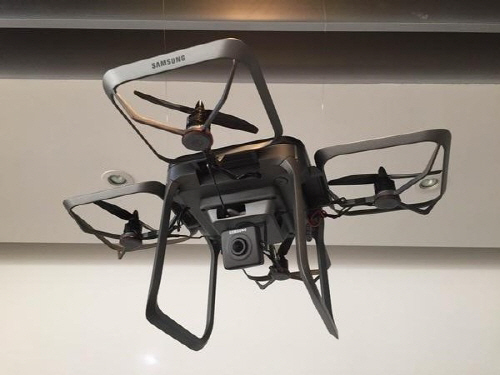Samsung’s Plans for a Selfie Drone Amid IoT Innovations

Excitement is buzzing around Samsung as rumors circulate about the company’s potential launch of a selfie drone. However, the latest reports suggest this device might not be what many are expecting. While the tech giant has previously dabbled in drone technology, such as the Cube Copter produced by Samsung Techwin, the future direction appears to be much broader and more innovative.
New Innovations on the Horizon
Following its acquisition by Hanwha Group, a leading defense conglomerate in South Korea, Samsung has taken significant steps to expand its research efforts in various fields, including drones, robotics, 3D printing, and virtual reality. A spokesperson from Samsung recently shared insights with the Korea Times, emphasizing that the newly established research team will focus on creating solutions that leverage the company’s manufacturing capabilities rather than just developing standalone products.
Connecting Technology to Daily Life
This initiative is part of a larger vision by Samsung’s CEO, BK Yoon, to realize the Internet of Things (IoT)—a connected ecosystem where everyday devices communicate and operate together seamlessly. Yoon has committed to investing $100 million in IoT development and aims for all Samsung products to be internet-connected within five years. “Our previous success relied on competitive pricing, but we must continuously innovate to meet evolving consumer needs,” the company stated.
Beyond Just Selfies
While the idea of a selfie drone may sound appealing, it’s essential to consider the broader implications of such technology. Instead of merely capturing images, Samsung may be looking to integrate IoT capabilities into their drones, similar to initiatives by other tech leaders like Sony. The trend of personal drones is gaining momentum, but concerns about safety and regulation are also on the rise.
- Incidents of reckless drone flying have prompted regulatory bodies to reconsider the accessibility of drones for the general public.
- Even miniaturized multirotors are classified as aircraft, and improper usage can lead to serious consequences.
- Locations such as Buckingham Palace, the White House, and American national parks have strict regulations against drone use for personal photography.
Ultimately, while the prospect of a Samsung selfie drone captures public imagination, the true potential lies in the data and connectivity these devices can offer. As the industry evolves, the focus may shift from merely snapping selfies to harnessing the power of technology to improve our daily lives.

